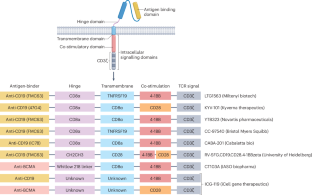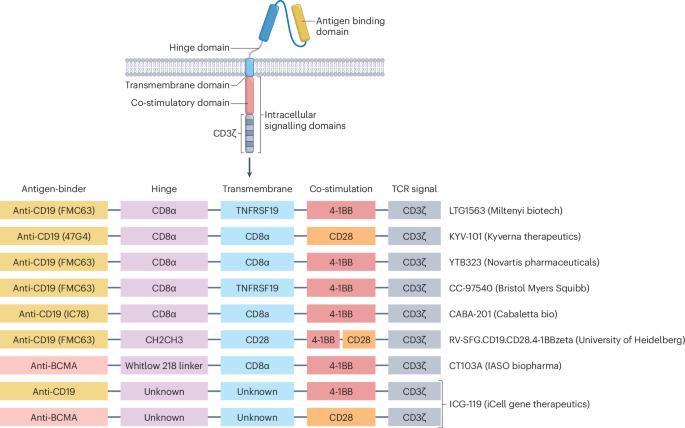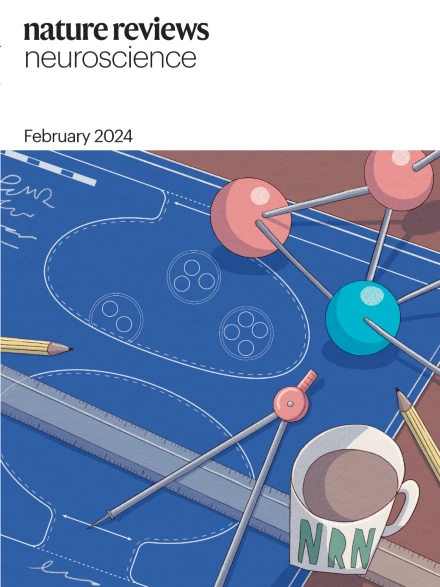Advancements and challenges in CAR T cell therapy in autoimmune diseases
IF 29.4
1区 医学
Q1 RHEUMATOLOGY
引用次数: 0
Abstract
Chimeric antigen receptor (CAR) T cells are highly effective at targeting and eliminating cells of the B cell lineage. CAR T cell therapy has become a standard-of-care treatment for patients with relapsed or refractory B cell malignancies. In addition, the administration of genetically modified T cells with the capacity to deplete B cells and/or plasma cells has tremendous therapeutic potential in autoimmune diseases. In the past few years, CD19-based and B cell maturation antigen (BCMA)-based CAR T cell therapies have been applied to various B cell-mediated autoimmune diseases including systemic lupus erythematosus, idiopathic inflammatory myopathy, systemic sclerosis, neuromyelitis optica spectrum disorder, myasthenia gravis and multiple sclerosis. The scientific rationale behind this approach is that deep depletion of B cells, including autoreactive B cell clones, could restore normal immune function, referred to as an immune reset. In this Review, we discuss important aspects of CAR T cell therapy in autoimmune disease, including considerations relating to patient selection, safety, efficacy and medical management. These considerations are based on the early experiences of CAR T cell therapy in autoimmune diseases, and as the field of CAR T cell therapy in autoimmune diseases continues to rapidly evolve, these issues will remain subject to ongoing refinement and adaptation. CAR T cell therapy shows promise for achieving long-term drug-free remission in various autoimmune diseases. This Review discusses the ongoing challenges and unanswered questions of CAR T cell therapy in autoimmune diseases, including pre-procedural, procedural and post-procedural considerations.


自身免疫性疾病 CAR T 细胞疗法的进展与挑战
嵌合抗原受体(CAR)T 细胞在靶向清除 B 细胞系细胞方面非常有效。CAR T 细胞疗法已成为复发或难治性 B 细胞恶性肿瘤患者的标准治疗方法。此外,转基因 T 细胞具有消耗 B 细胞和/或浆细胞的能力,对自身免疫性疾病具有巨大的治疗潜力。在过去几年中,基于 CD19 和 B 细胞成熟抗原(BCMA)的 CAR T 细胞疗法已被应用于各种 B 细胞介导的自身免疫性疾病,包括系统性红斑狼疮、特发性炎症性肌病、系统性硬化症、神经性脊髓炎视网膜频谱障碍、重症肌无力和多发性硬化症。这种方法背后的科学原理是,深度消耗 B 细胞(包括自反应性 B 细胞克隆)可以恢复正常的免疫功能,即所谓的免疫重置。在本综述中,我们将讨论 CAR T 细胞疗法治疗自身免疫性疾病的重要方面,包括与患者选择、安全性、疗效和医疗管理有关的注意事项。这些考虑因素基于 CAR T 细胞疗法治疗自身免疫性疾病的早期经验,随着 CAR T 细胞疗法治疗自身免疫性疾病领域的持续快速发展,这些问题仍将不断完善和调整。
本文章由计算机程序翻译,如有差异,请以英文原文为准。
求助全文
约1分钟内获得全文
求助全文
来源期刊

Nature Reviews Rheumatology
医学-风湿病学
CiteScore
29.90
自引率
0.90%
发文量
137
审稿时长
6-12 weeks
期刊介绍:
Nature Reviews Rheumatology is part of the Nature Reviews portfolio of journals. The journal scope covers the entire spectrum of rheumatology research. We ensure that our articles are accessible to the widest possible audience.
 求助内容:
求助内容: 应助结果提醒方式:
应助结果提醒方式:


